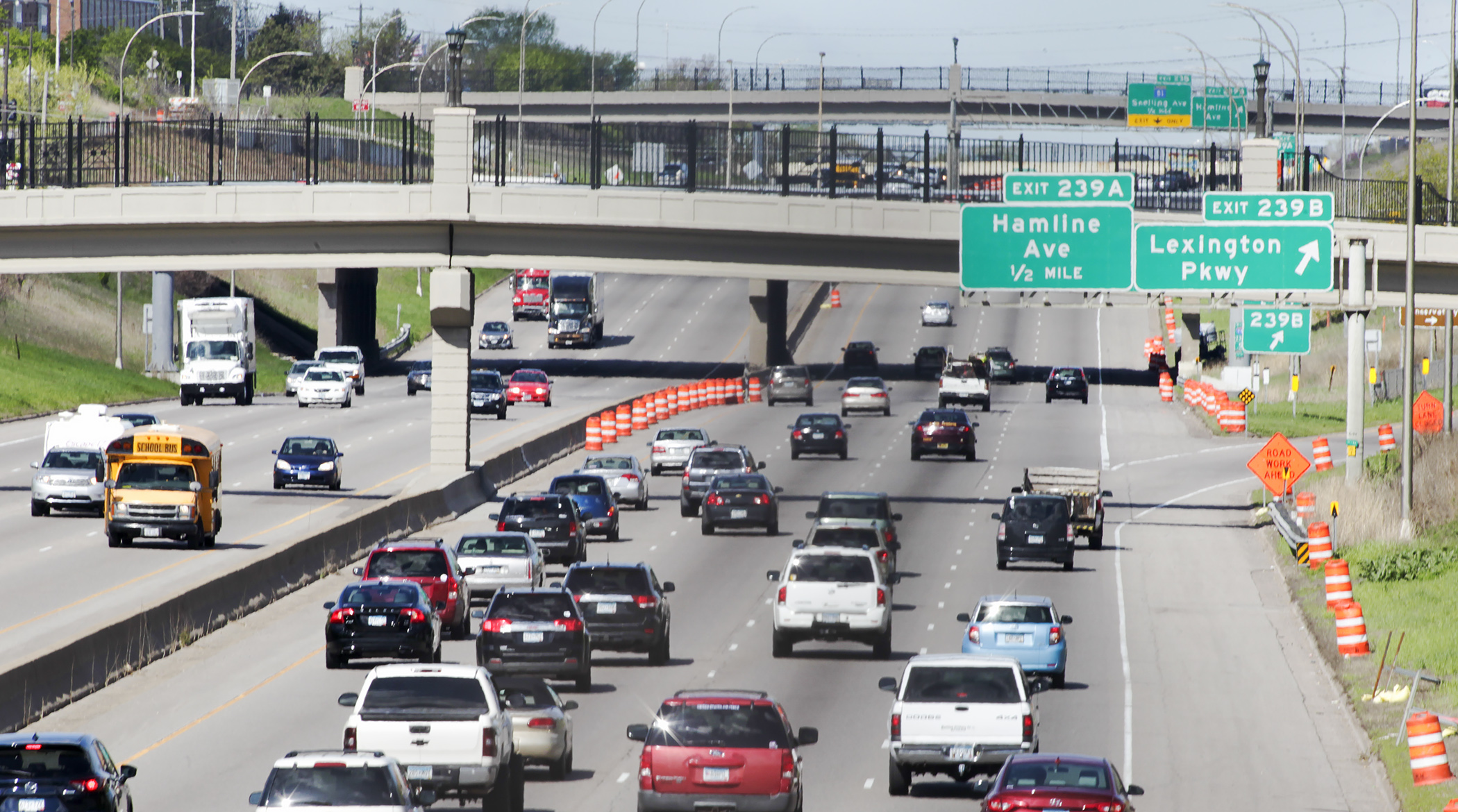Agreement on transportation budget includes gas tax hike, delivery fee

There’s been widespread agreement that the Legislature should put more money into transportation. There’s even broad agreement on where much of the money should go. And Saturday, members of the conference committee on the transportation finance bill announced an agreement about where the money should come from.
Sponsored by Rep. Frank Hornstein (DFL-Mpls) and Sen. D. Scott Dibble (DFL-Mpls) the agreement to an amended HF2887 calls for a 50-cent fee on deliveries more than $100, would index the gas tax to inflation, and increase the metro area sales tax by 0.75% with the new funds going mostly for transit.
Additionally, it would authorize a total of $8.8 billion to the Department of Transportation and Department of Public safety from all funds. This includes a net appropriation of $1.1 billion from the General Fund in the next biennium for transportation. It would also authorize nearly $600 million from proceeds of trunk highway bonds for roads and bridges.
[MORE: View the spreadsheet]
“Today, we will introduce a historic, generational investment in transportation that will create jobs, build the economy, improve roadway safety, address the climate crisis, and serve all Minnesotans,” Hornstein and Dibble said in a joint statement. “The budget will make strategic investments in transportation and transit systems across the state, which will enable Minnesota to fix its crumbling road and bridge system and create a modern transit system. After years of underfunding transportation, this investment will provide the long-term support we need to keep transit afloat.”
Other transportation funding increases would come from registration fee modifications and gradual reallocation of auto parts sales taxes over the next 10 years.
The bill first approved by the House proposed 75-cent delivery fee on most deliveries and the Senate bill had a 0.5% metro sales tax increase. Neither had proposed a gas tax increase.
Among the new spending from the General Fund would be:
- $194.7 million to establish the Northern Lights Express passenger rail between the Twin Cities and Duluth;
- $50 million for to extend the Blue Line to northwest Minneapolis suburbs;
- $25 million for to reconstruct Rice Street near the Capitol Complex;
- $20 million for Highway 5 improvements in Carver County;
- $18 million more for local road improvements program;
- $18 million more for local bridges;
- $10 million for a rail crossing improvements in Moorhead;
- $10 million for intersection improvements at Highway 169/109th Avenue in Hennepin County; and
- $3 million for bus rapid transit along Highway 169 and Highway 55 corridors.
Policy provisions
The agreement takes language from the House and Senate bills to address transit rider safety concerns by requiring the Metropolitan Council to establish a code of conduct. A Transit Rider Investment Program would enforce rules, offer customer service with personnel able to issue citations and act as social services liaisons.
Many provisions of the Bill Dooley Bicycle Safety Act are included. They would require schools teach bicycle and pedestrian safety, create an active transportation advisory committee and allow a so-called “Idaho stop” at stop signs, where cyclists aren’t required to make a complete, foot-down stop. A full stop would continue to be required at stoplights.
Other provisions would:
- require rail disaster contingency planning;
- require consideration of greenhouse gas emissions in transportation planning;
- fund a Highways for Habitat program;
- establish licensing stations in North Minneapolis and near the Hmong Village shopping mall in St. Paul;
- establish a clean transportation fuel standard working group with environmental and industry membership;
- exempt license holders from other states from testing requirements when applying in Minnesota;
- designate the Jim Oberstar Bikeway between St. Paul and Canada, named for the longtime member of Congress; and
- offer an electric bike rebate program.
Related Articles
Search Session Daily
Advanced Search OptionsPriority Dailies
Legislative leaders set 2026 committee deadlines
By Lisa Kaczke Legislative leaders on Tuesday officially set the timeline for getting bills through the committee process during the upcoming 2026 session.
Here are the three deadlines for...
Legislative leaders on Tuesday officially set the timeline for getting bills through the committee process during the upcoming 2026 session.
Here are the three deadlines for...